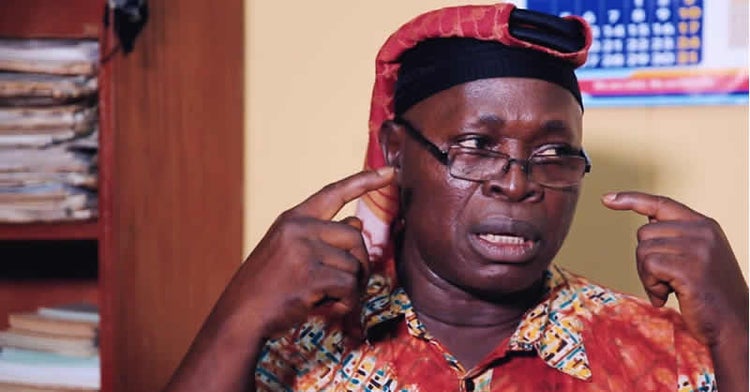
MURIC COMMENDS APPEAL COURT OYO JUDGES FOR UPHOLDING SANCTITY OF ISLAMIC MARRIAGE
The Oyo State Customary Court of Appeal has received kudos from the Muslim Rights Concern (MURIC) for upholding the sanctity of marriages conducted under Islamic law. The human rights organization commended the judges who presided over a divorce case in which a Grade ‘A’ Customary Court attempted to dissolve a marriage contracted according to Islamic law.
The appellate court declared that no customary court anywhere in Nigeria has the jurisdiction to determine a case involving an Islamic marriage or the custody of children of an Islamic marriage. MURIC described the judgement as a landmark decision and an unprecedented eye-opener for Nigerian Muslims.
The group spoke on Monday, 14th October, 2024 via a statement issued by its Founder and Executive Director, Professor Ishaq Akintola.
“The attempt by a Muslim woman to dissolve her Islamic marriage in a customary court has failed. Although the marriage was conducted more than twenty years ago, the wife instituted suit No. OY/CCGA/IBN/5WD/2021 in a customary court for dissolution when it became clear that things were not working as expected.
*“Not satisfied, the husband objected on the ground that their union was originally contracted as an Islamic marriage. His lawyer argued that a customary court had no jurisdiction to dissolve an Islamic marriage. But the customary court was determined to hear the case. The lower Customary Court ruling was delivered in favour of the woman on 26th August 2021.*
“Dissatisfied, the husband instituted suit No. CCA/1/22/2022 at the Oyo State Customary Court of Appeal, Ibadan, which ruled in favour of the husband on Monday, 8th April, 2024.
“Counsel to the wife attempted to convince the court that the marriage was held in Yoruba traditional fashion, therefore the Grade A Customary Court had jurisdiction to hear the case. But the husband’s counsel contended that it was an Islamic marriage and supported his argument by presenting the marriage certificate which was written in Arabic (Exhibit ‘D’) and translated into English (Exhibit ‘E’).
“The Court considered the translated text of the marriage certificate which reads thus, ‘In Islam marriage is a contract. It is formalized with the consent of a guardian, payment of sadaq (dowry) and in the presence of witnesses. May the peace and blessings of Allah be upon our leader Muhammad (SAW) who says, ‘Marriage is my tradition and whoever disregards it is not of me.’ This marriage is conducted in line with the Sunnah of Allah and His Prophet in the presence of a group of Muslims. It is held at (venue withheld to protect the identity of litigants),’
“The court inspected the marriage certificate, particularly the signatures of the husband, the wife, the wife’s father, representative of the husband’s father, the Imam and that of the Chief Missioner. The Islamic certificate was dated 2nd March, 2002.
“In particular, the learned judges sought to resolve the question whether the Customary court by the law establishing it has the power to determine cases involving Islamic marriage.
“The court relied heavily on Section 14(2) of the Customary Court Law 2018, which gives unlimited jurisdiction to customary courts in cases and matters between persons married under customary law as well as custody of children of couples married under customary law.
*“The court interpreted this section of the Customary Court Law 2018 by citing the rule of ‘expressio unis exclusio alterius’ i.e. the mention of only one thing of a class means the silent exclusion of all other things of the class. The statue by mentioning marriages conducted under customary system as the special jurisdiction of Grade ‘A’ Customary Courts has excluded marriages conducted according to Islamic law.*
“The court therefore ruled that Grade ‘A’ Customary Courts have no jurisdiction to entertain cases concerning Islamic marriage and matters relating to the custody of children of an Islamic marriage. To arrive at this conclusion, the court relied on cases determined in like manner by the Court of Appeal in Mandara Vs Amin (2004), Usman Vs Kareem (2006) and AbdusSamad Vs Abdullahi (2015).
“The decision of the Court of Appeal in these cases is that where a plaintiff’s claim is purely a matter of Islamic personal law, no High Court in Nigeria is saddled with the jurisdiction to hear and determine the claims.
“This is indubitably a landmark pronouncement and an unprecedented eye-opener for Nigerian Muslims, particularly those of the Southern part of the country. Many Muslim marriages have been wrongly dissolved while the children involved in those marriages had their Allah-given fundamental rights infringed upon as they were wrongfully given out.
“MURIC commends the judges of the Customary Court of Appeal for their boldness, erudition and deep research. The depth of analysis exhibited showed their commitment to the naked truth and objectivity. They deserve generous encomiums for upholding the sanctity of marriages conducted under Islamic law.
*“But a dilemma has emerged with the court rulings. If customary courts have no jurisdiction to try cases involving Islamic marriage and the custody of children emanating from such marriage; if even the high courts cannot adjudicate in matters affecting Islamic marriage due to its nature as personal law, which court can Muslims go for family civil matters like divorce, inheritance, child custody, etc, particularly in the whole of Southern Nigeria where there is no single Shariah court?*
“This case has exposed the weakness in the judicial system as practiced in Southern Nigeria. By failing or by refusing to provide Shariah courts, the state governments of Southern Nigeria (South-West, South-East, and South-South), have ostracized Muslim families in the region from the judicial system. Yet these states pride themselves as being upright in their practice of democracy. But can there be democracy in an exclusive system?”
#CourtsKeepOffIslamicMarriages
#WantedShariahCourts
![]()
